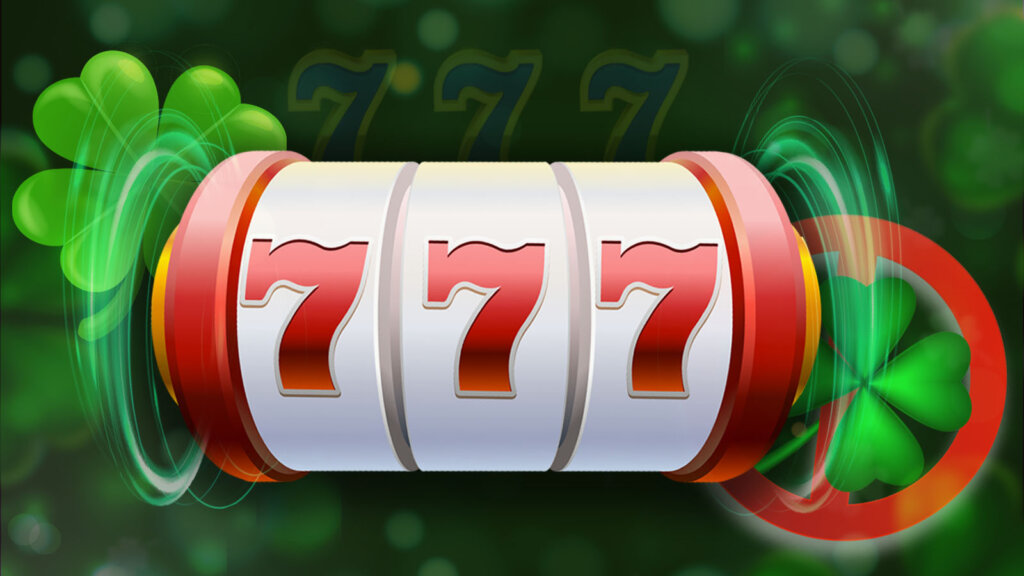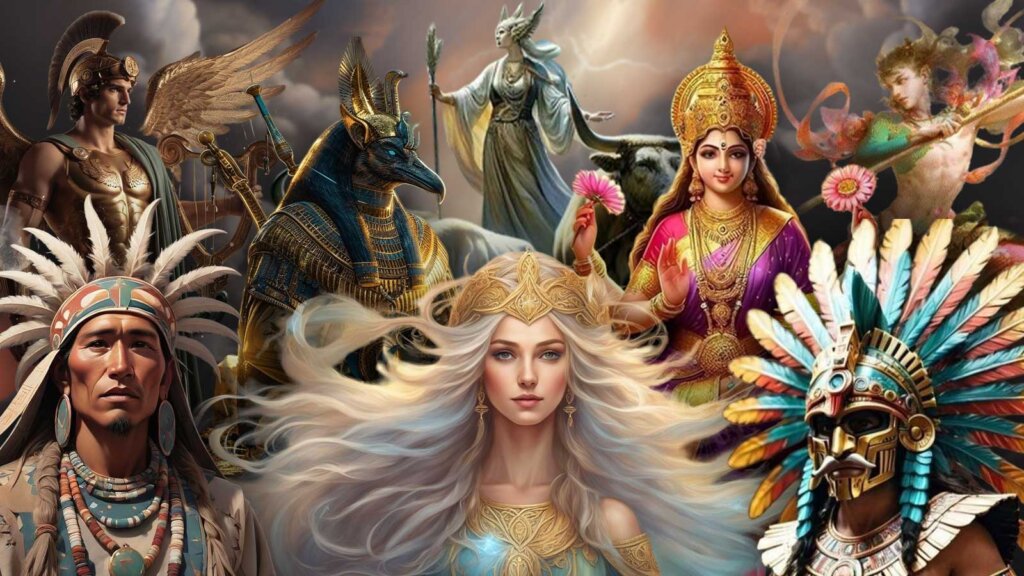
Top 9 Gambling Gods & Their Unique Stories
All the information in this page was checked by:
All the information we present is verified by our team of casino reviewers using multiple sources. We commit to a high level of accuracy and reliability.
We have paid partnerships with the online casino operators featured on our site. We also earn commissions when you, the user, click on certain casino links. These financial partnerships do not affect our reviews, recommendations, or analysis. We remain committed to delivering unbiased gambling reviews. For more details, visit our Advertiser Disclosure page.
Think luck is random? Many ancient gamblers didn’t. Gods and goddesses of fortune were worshipped for centuries, believed to control fate at the dice table. We’ll take a look at the most famous gambling gods and their stories, because there’s something to learn from each.
- Gods of Luck, Fortune and Gambling : A Global Pantheon
- Macuilxochitl: Vengeful, yet Sensitive
- Lofn: The Goddess of Love, Who Gambles
- Papa Legba: The Spiritual Gambler
- Geifon: The Norse Dealer of Destiny
- Thoth: The Wise Gambler
- Nezha: Sadness & Sacrifice
- Nohoipili: The Corrupted Teacher
- Lakshmi: A Passionate Moral Compass
- Hermes: The Rebellious Player
- Gambling Gods To Remember: 3 Honourable Mentions
- The Influence of Gambling Gods on Modern Gambling Culture
- Final Thoughts
Gods of Luck, Fortune and Gambling: A Global Pantheon
In every corner of the world, cultures have revered deities who govern the realms of luck, prosperity, and the outcome of games of chance. These divine figures, embodying the hopes and fears of gamblers throughout history, offer fascinating insights into how different civilizations conceptualize fortune and fate. Below is a table showcasing a selection of these gods from various cultures, each bringing their own story and influence to the gambling tables of humanity.
| Country | God of Luck and Its Attributes |
|---|---|
| Aztec (Mexico) | Macuilxochitl, known as “Five Flower”, a patron of music, arts, and gambling, is associated with excess and punishment for overindulgence. |
| Norse | Lofn, the goddess of love and luck, is believed to support and bring together forbidden lovers and is associated with gambling luck. |
| Haiti | Papa Legba, a Voodoo deity of crossroads, communication, and gambling, known for his trickery and requiring respect for good fortune. |
| Norse | Geifon, a goddess of luck, wealth, and fate, is depicted as a bringer of good fortune and prosperity through hard work and honesty. |
| Egypt | Thoth, the god of wisdom, writing, and gambling, credited with creating games of chance and ruling over intellectual pursuits. |
| China | Nezha, a youthful and rebellious god known for his trickery and protection of gamblers, believed to reveal lottery numbers to favored individuals. |
| Navajo (North America) | Nohoipili, the Great Gambler, taught humanity to gamble but was banished for his greed, a legend explaining the origins of gambling skills among people. |
| India | Lakshmi, the goddess of wealth, prosperity, and beauty, supports honest gamblers but requires them to steer clear of greed and arrogance. |
| Greece | Hermes, the messenger of the gods, known for his quick wit, invention of dice, and as a patron of gambling, often assisting or hindering gamblers. |
This selection can give you an idea about the universal concepts of chance and destiny, represented through a vast collection of myths and legends. These gods of luck and fortune serve not just as spiritual guides for gamblers seeking divine favour when spinning the reels at’slots or throwing the dice at table games but also as cultural symbols that reflect the values, hopes, and fears of their societies. Whether seeking a fortuitous outcome when playing at online casinos or embarking on any risky venture, the ancient practice of invoking these deities highlights the timeless human desire to influence the uncertain and to find favor in the eyes of the divine.
Macuilxochitl: Vengeful yet Sensitive
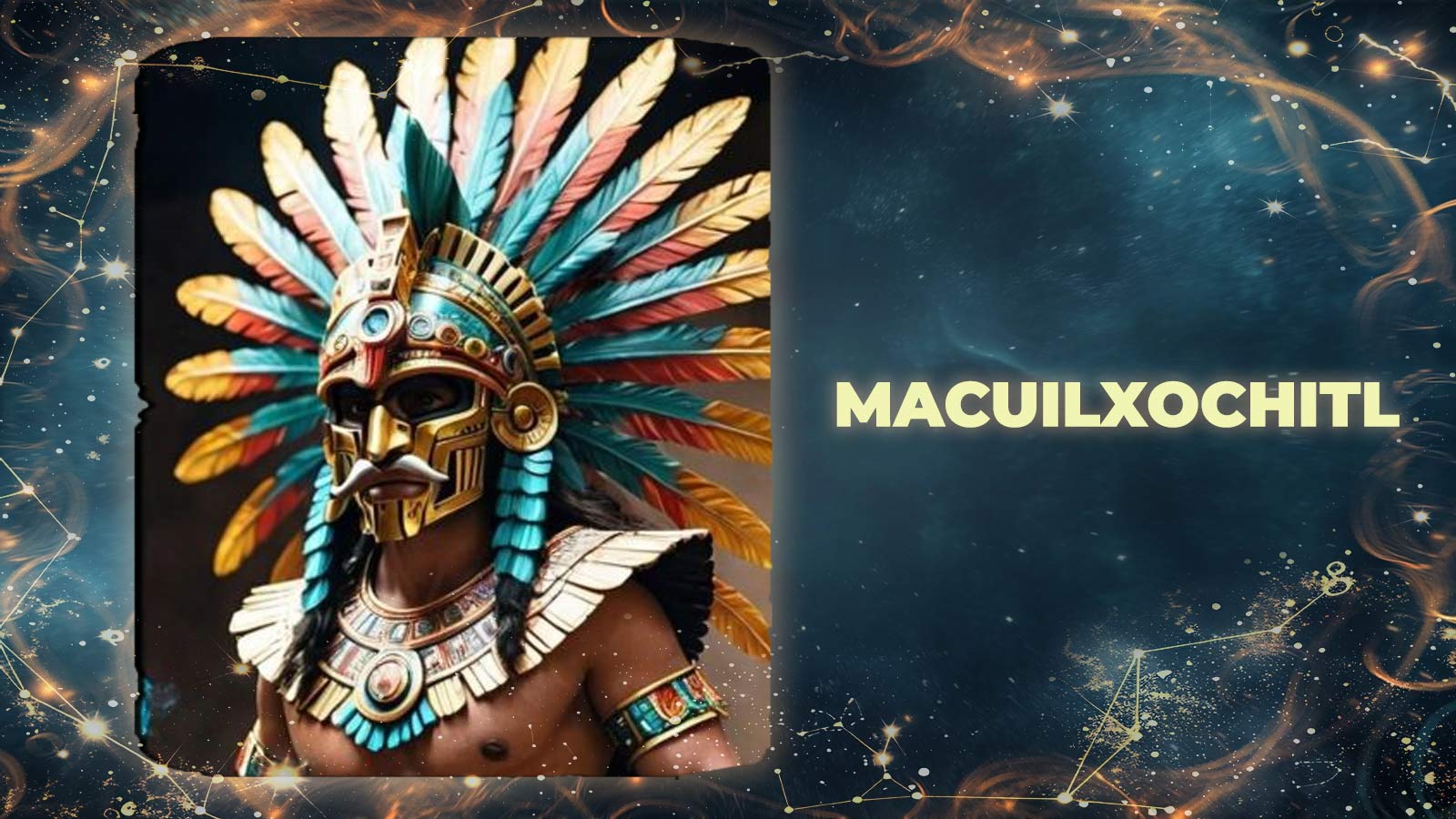
The Aztec Flower Prince, Macuilxochitl, is painted as a sensitive, refined creature in charge of all finery in life. He patronises music, the visual arts, poetry, lust, fine food, and, of course, among the top ancient gods of gambling. His association with overindulgence in life’s pleasures appears in many legends. For instance, he was part of Centzon TÅtÅchtin, a group of four-hundred rabbits of divine origin. The sacred rabbits, not all of them gods of gambling, loved to meet up for frequent drunkenness and debauchery. For the Aztecs, five symbolizes excess. Thus, since the number 5 has this symbolism in Aztec folklore, Macuilxochitl was often referred to as the “Five Flower.”
Don’t cross him!
But Macuilxochitl and his fellow gods were the only ones allowed to overindulge in life’s most extraordinary gifts. He maintained a strong reputation for punishing mortals who engaged in excess. If you gave yourself to depravity or over-gambling, especially during fast periods, you were likely to get haemorrhoids, venereal diseases, or boils from the gambling god. Even today, gambling compulsion remains a severe disorder that develops if we are not mindful of our habits. For this reason, our experts have prepared an arsenal of gambling addiction resources for you to recognise, preempt, and combat the disorder.
Lofn: The Goddess of Love, Who Gambles
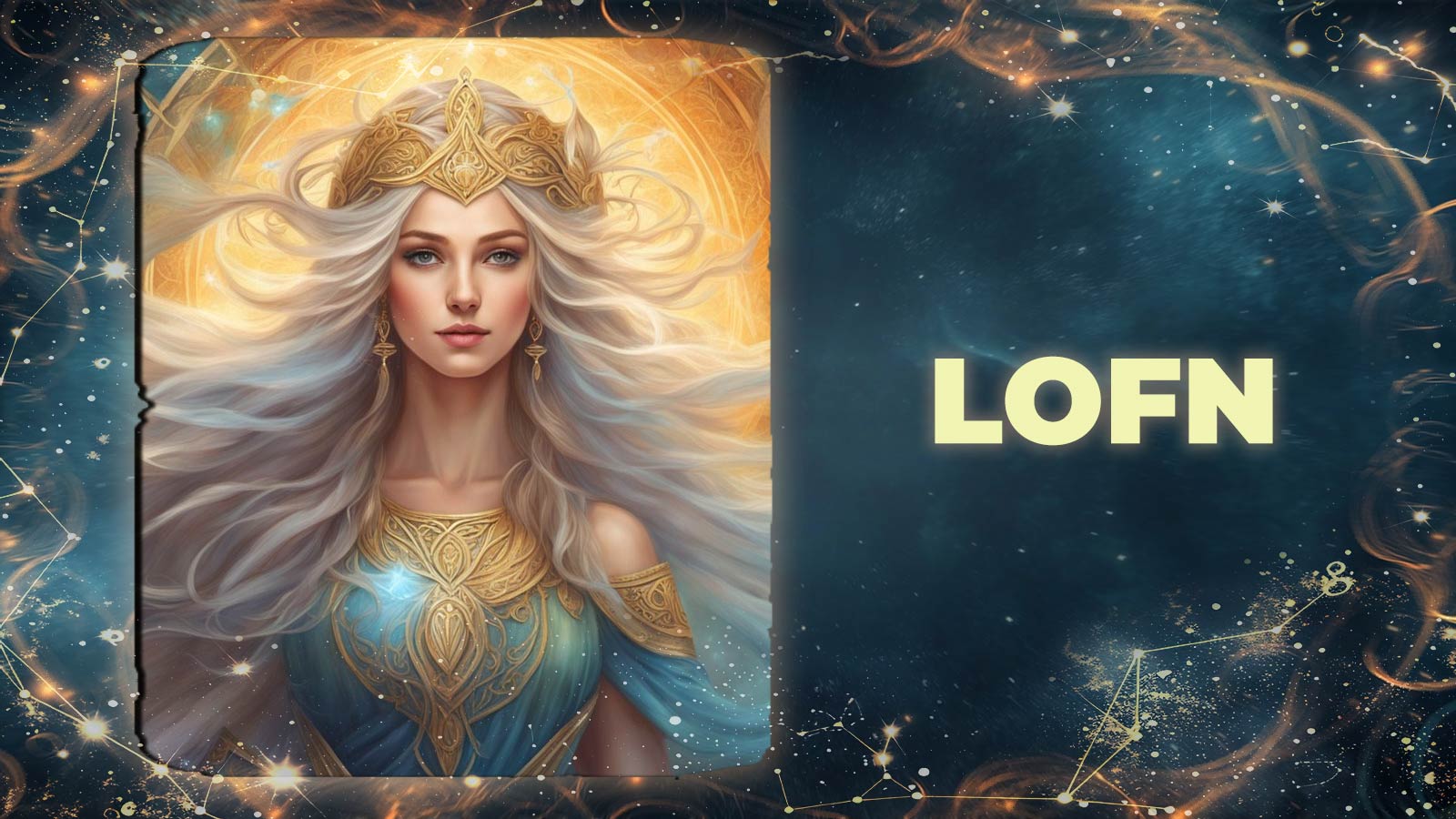
She is delicate, comforting, and loving: the ultimate expression of a common human need for closeness, acceptance, and gentle healing. Appearing in a 13th-century Icelandic manuscript as the goddess who heals unrequited love, Lofn is also the only one who can bring together couples. She can offer support even if other Gods, rival tribes, or societal norms forbid them. Lofn means permission and praise. Also used as a word for woman or goddess in skaldic poetry, she allows love to happen in many ways. She’s described as being fond of outcasts, unloved, or simply hopeful.
Take that chance!
Lofn is not at all a passive goddess. She is often portrayed as involved with her subjects and defending the oppressed. She encourages those who want to be themselves and follow their dreams, bestowing good luck to those who gamble responsibly. Legends say that she expects the same from her subjects. Lofn is believed to become angry and bring bad luck if you fail to take a chance. She warns against choosing comfort over fulfilling your dreams or discriminating against others. But the right offerings can subdue the temper of the Norse goddess of love. Lofn accepts gambling symbols such as cards, chips, or dice. She is also said to ask for signs of alternative love or songs in exchange for good luck. The goddess is associated with lavender. Today, people still believe in some of these gambling rituals. For instance, some gamblers often pull an extra chair at their table and adapt their games to include an additional player. In this way, Lofn could join the game.
Papa Legba: The Spiritual Gambler
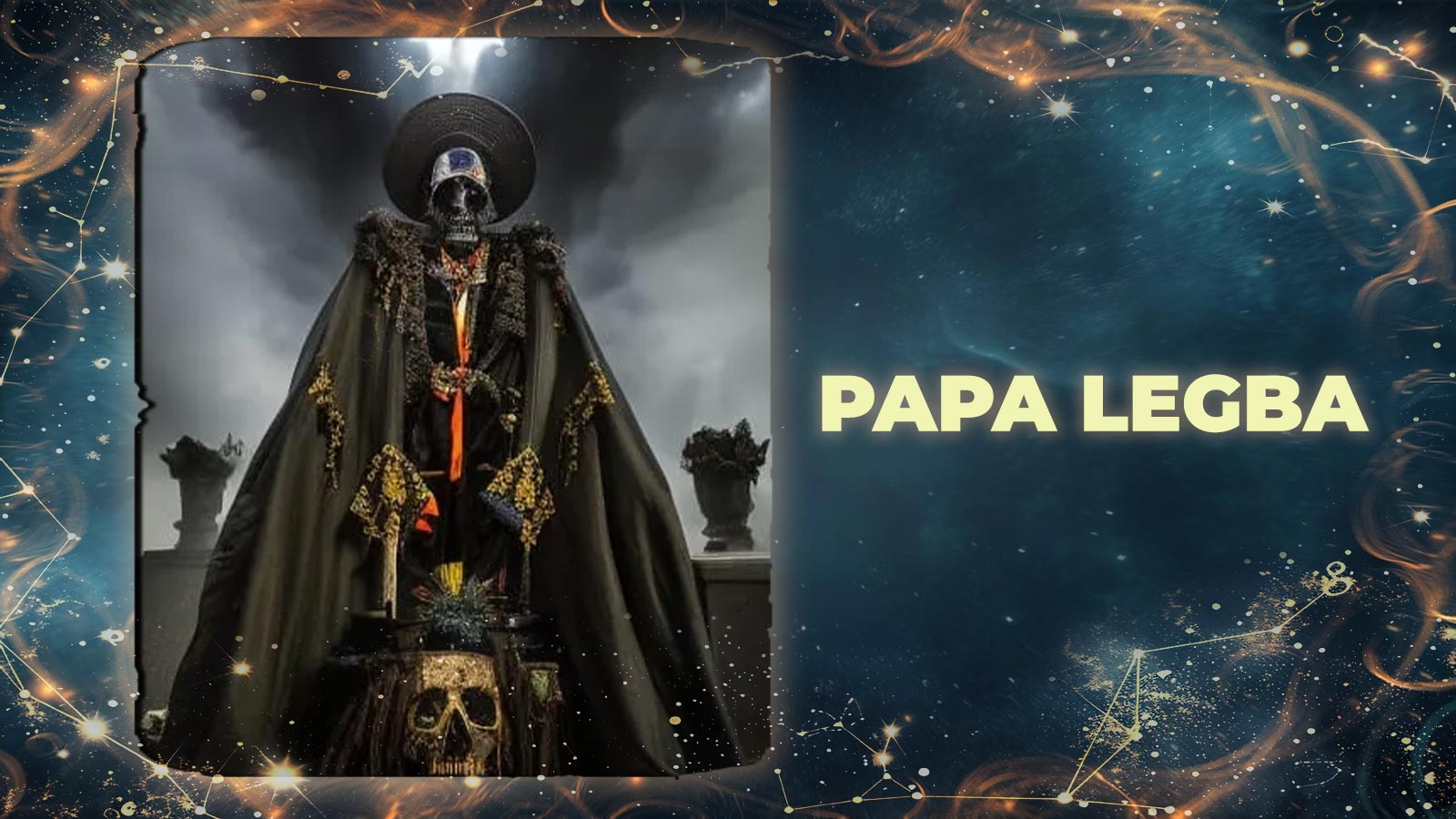
In a straw hat, the old man leaning on a cane by a gloomy doorway belongs to the Haitian Voodoo gambling gods. He usually dwells around gates and at crossroads.
His features and associations
His limp indicates that he walks among the living and the spirits simultaneously, like a rugged, poor guardian. He is Papa Legba. Having mastered speech and communication, he knows all the world’s languages, including spirits. His realms are security and uncertainty, so people often invoke him during games of chance.
Trickery and respect
Beyond his ethereal and frightening appearance, legends also uncover a more laid-back Papa Legba. He’s known for his love of riddles, his affection for dogs, and his trickery nature, making him an ally to gamblers. The various myths about this god reveal that the key to getting Papa Legba on your side when gambling is to show him respect. However, according to many stories, he doesn’t ask for much proof. All you need to do is offer him a drink or answer his riddle correctly. It would be best if you showed respect by offering him a drink to convince him you deserve good fortune at the blackjack table.
Geifon: The Norse Dealer of Destiny
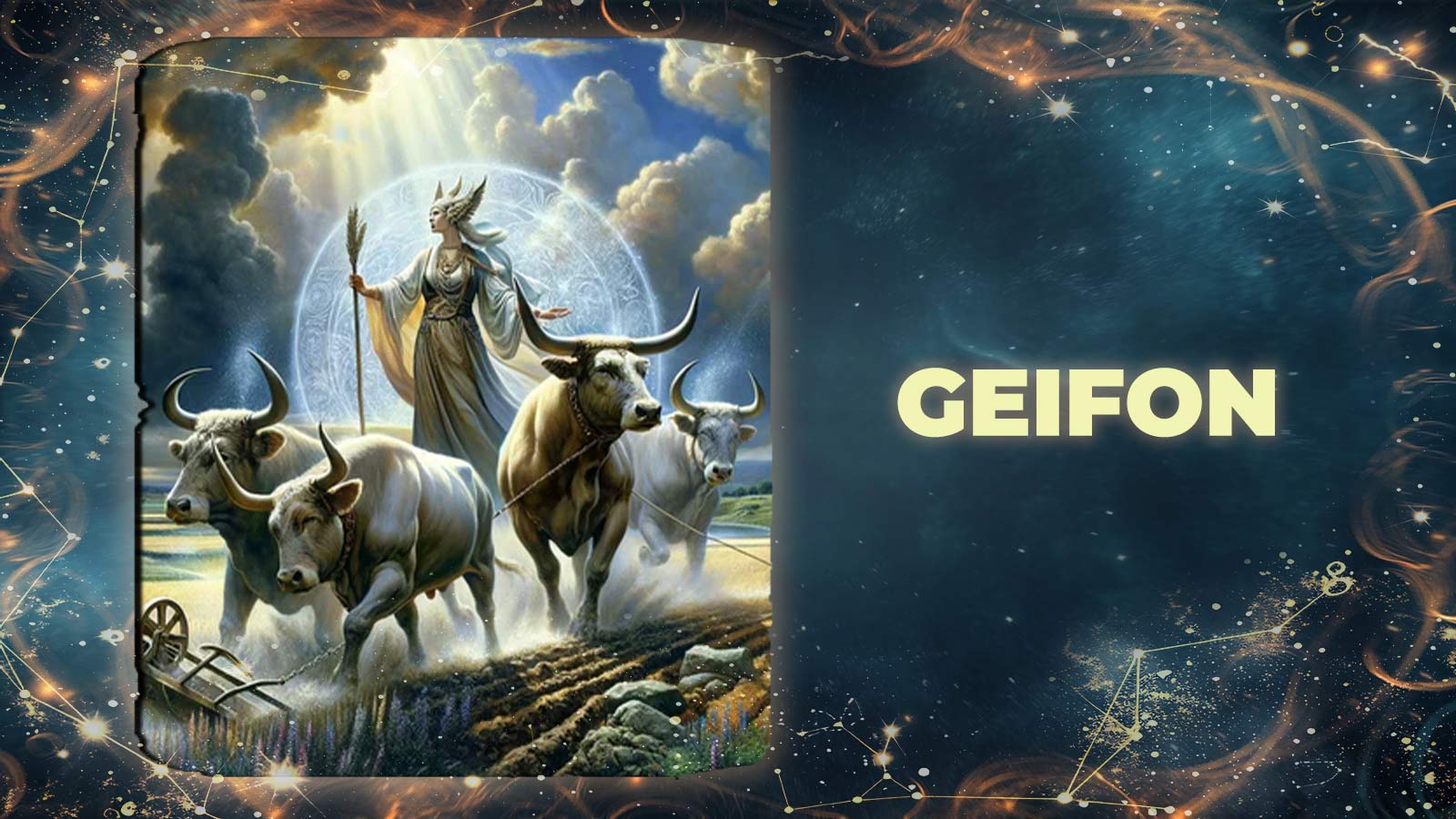
Another Norse gambling goddess is also associated with hard work and agriculture despite the usual connotations of gambling and unreliable game results. Geifon, who rules over luck, wealth, and gambling, is usually depicted as a young and determined maiden or the Nordic allegorical mother.
Her legacy
Geifon inspires many paintings and poems and appears in countless Scandinavian stories.
Her influence was quite significant:
- Geifon is believed to have created Zealand, a land where the souls of all women who died young could rest freely and unbothered.
- As she’s the goddess of good fortune, so, of course, her descendants became the Swedish kings.
According to the stories, people had to be honest and fair at the game and in their lives to earn this goddess’ favour at gambling.
Thoth: The Wise Gambler
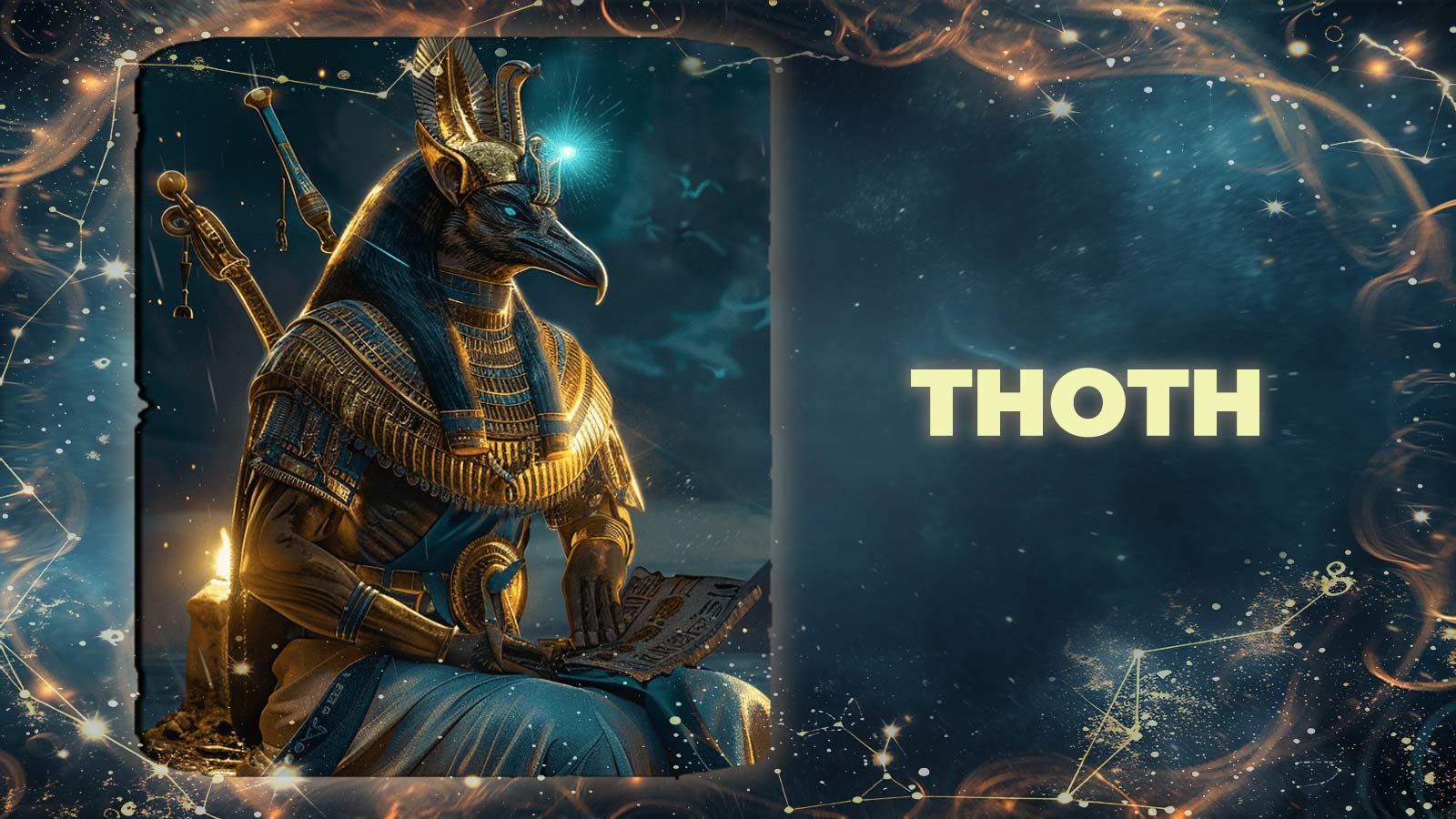
This figure belonging to the Egyptian gods of gambling connects chance games with wisdom. Thoth brought himself into existence, without the help of parents or other gods. He rules over intellectual and spiritual aspects of Egyptian life:
- He is the creator of speech, languages, and writing;
- Often, Thoth is depicted as the advisor of other major Egyptian Gods;
- Toth rules on the souls of those who die;
- He’s also the Moon God, and an official representative to the Sun God, Ra.
As the God of the Moon, he reigns over the dream world and the hidden facets of the soul. Toth is the one to make a clear distinction between what is merely an illusion and what is real. A master of shadows and the unseen, it is no wonder that he was also described as the creator of chance games. Decidedly, Thoth is among the prominent Egyptian gods of gambling.
Games of chance in Ancient Egypt
Many Egyptians engaged in gambling as part of daily life. Archaeologists have discovered scenes of games, gods, and gambling activities on many Egyptian tombs, where the symbol of Thoth also appeared. A preferred Egyptian chance game was Senet, which involved strategy and luck and appealed to both mortals and the gambling gods. As the name means “passing” or “afternoon,” Egyptians believed that Thoth used this game to decide the fates of those who passed on. It is believed that Thoth played Senet against the Moon and won so the goddess Nut could fulfil her wish to become pregnant.
Nezha: Sadness & Sacrifice
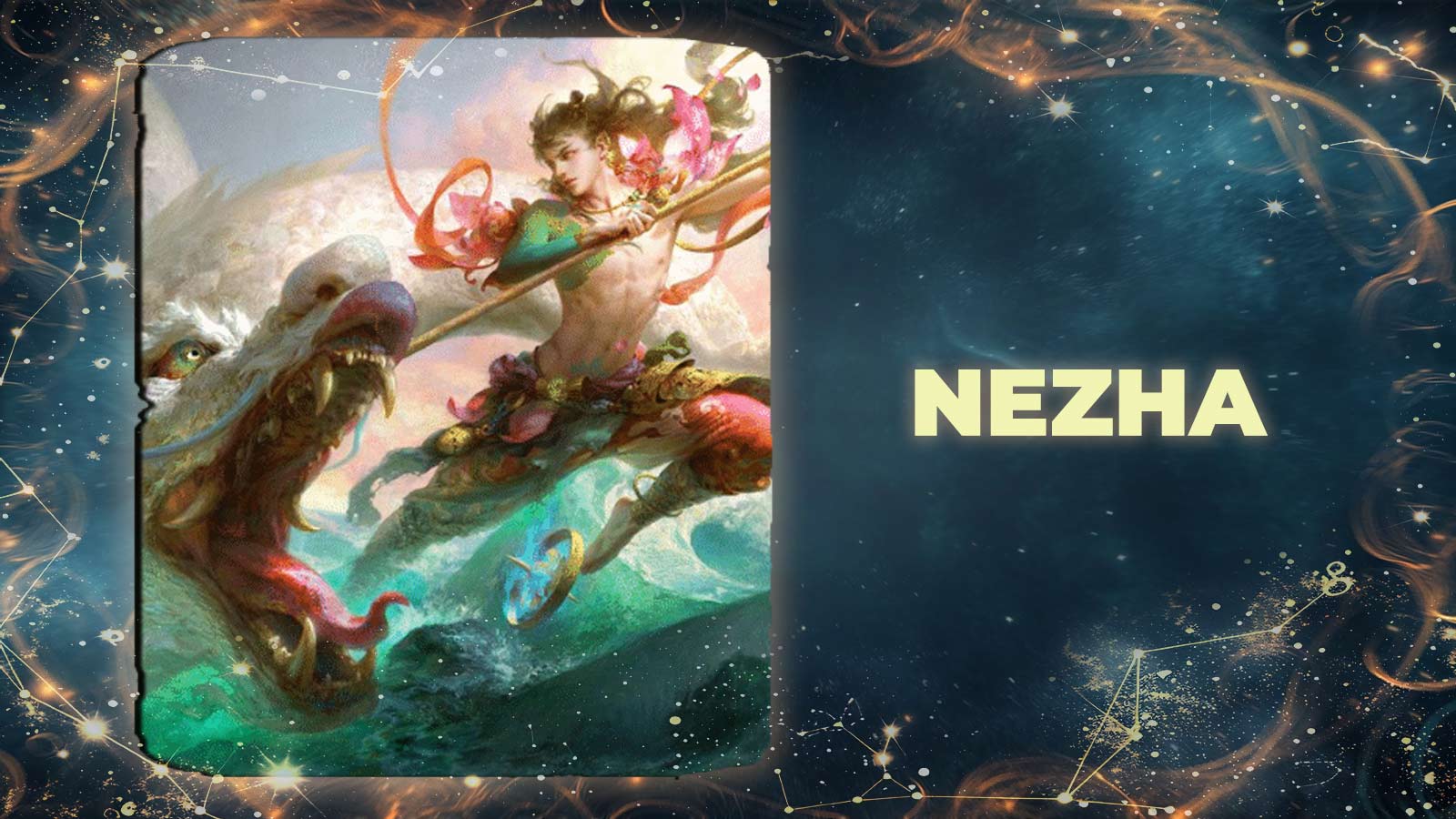
Nezha, among the gambling gods renowned in China, is often depicted as a rebellious albeit passionate adolescent. His lore revolves around reconciling with his parents. Due to his strong feelings and sense of devotion and honour, Nezha often fought dragons, emperors, and military commanders. Essentially, this god rebelled against all oppressive authority. However, he often leads these battles for the sake of his friends and justice. Nezha committed the ultimate sacrifice to save his family and his community.
His relationship with gambling
The rebellious teenage god is also characterised by mischief and trickery. Youthful, Nezha is also described as a humorous character, starkly contrasting his dramatic destiny. He’s amongst the revered Chinese gods who protect those who gamble. Even today, Nezha reveals lottery numbers in advance to gamblers he likes.
Nohoipili: The Corrupted Teacher
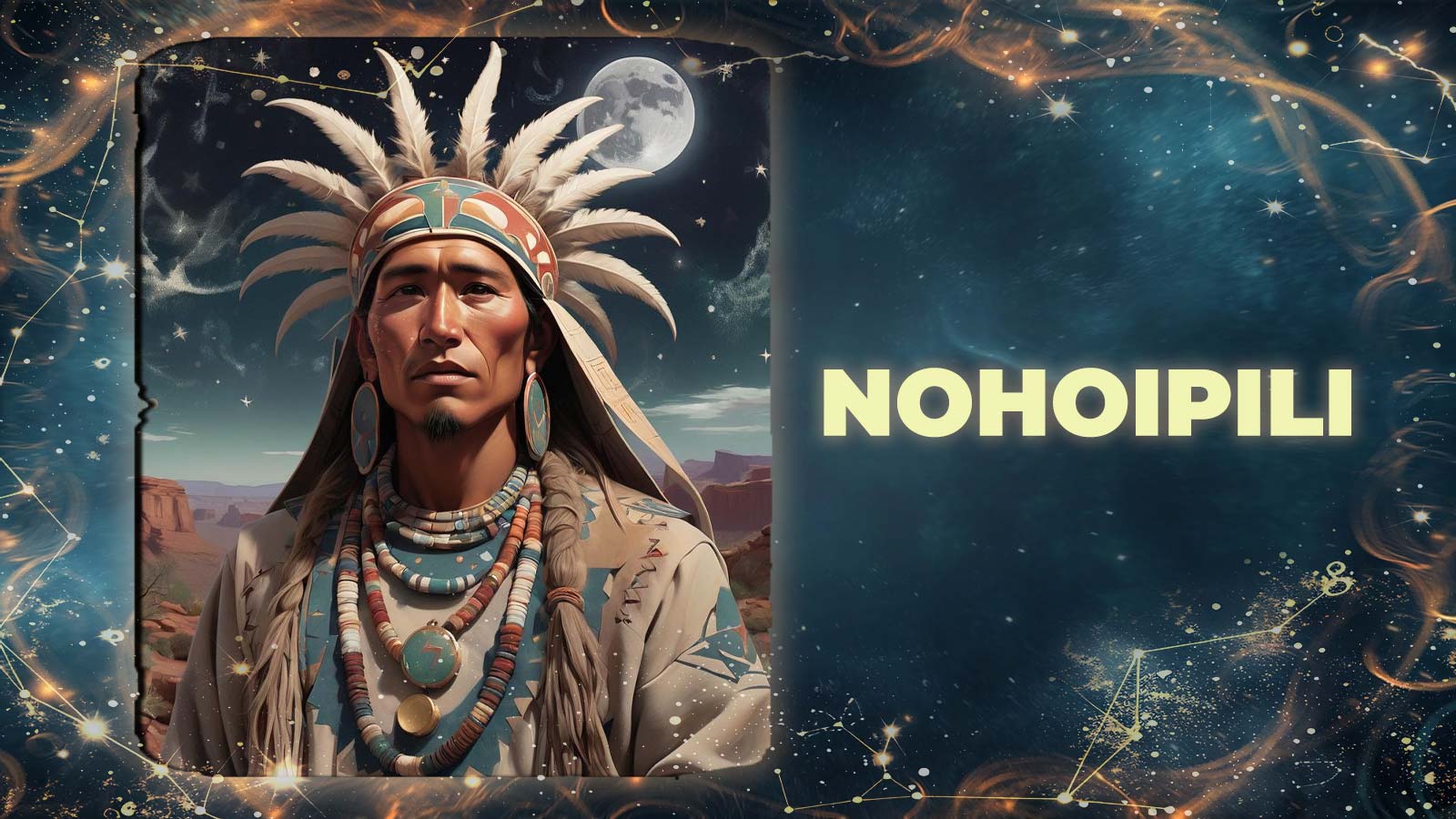
Nohoipili is the Great Gambler of Navajo. According to certain legends, he created chance games and arrived on earth to teach humanity how to gamble. Among all gambling gods, he was initially depicted as a radiant and playful character. This trait suited him as the son of the Sun God of many ancient pueblos of Northern New Mexico. Nohoipili was also very bright and benevolent, as his initial desire was to elevate people’s intelligence and analytical capabilities.
The banishment of an addicted God
However, no mortal could match his mind, as he was seen as the most skilled of all gambling gods. Very soon, Nohoipili became addicted to defeating people in gambling and turned to greed and cruelty. He would force people to play him and often demanded women and children as payment.
His price to pay
Such endeavours angered the other gods, who saw the injustice in the situation. They eventually bestowed a godly intelligence to a simple person from Navajo who finally defeated Nohoipili. After the defeat, he was banished to the sky, where, surprisingly, he received new people to govern. The legend of Nohoipili is a Mexican genesis myth. It explains the rivalry between the Mexicans (Nohoipili’s people) and the Navajos.
Lakshmi: A Passionate Moral Compass
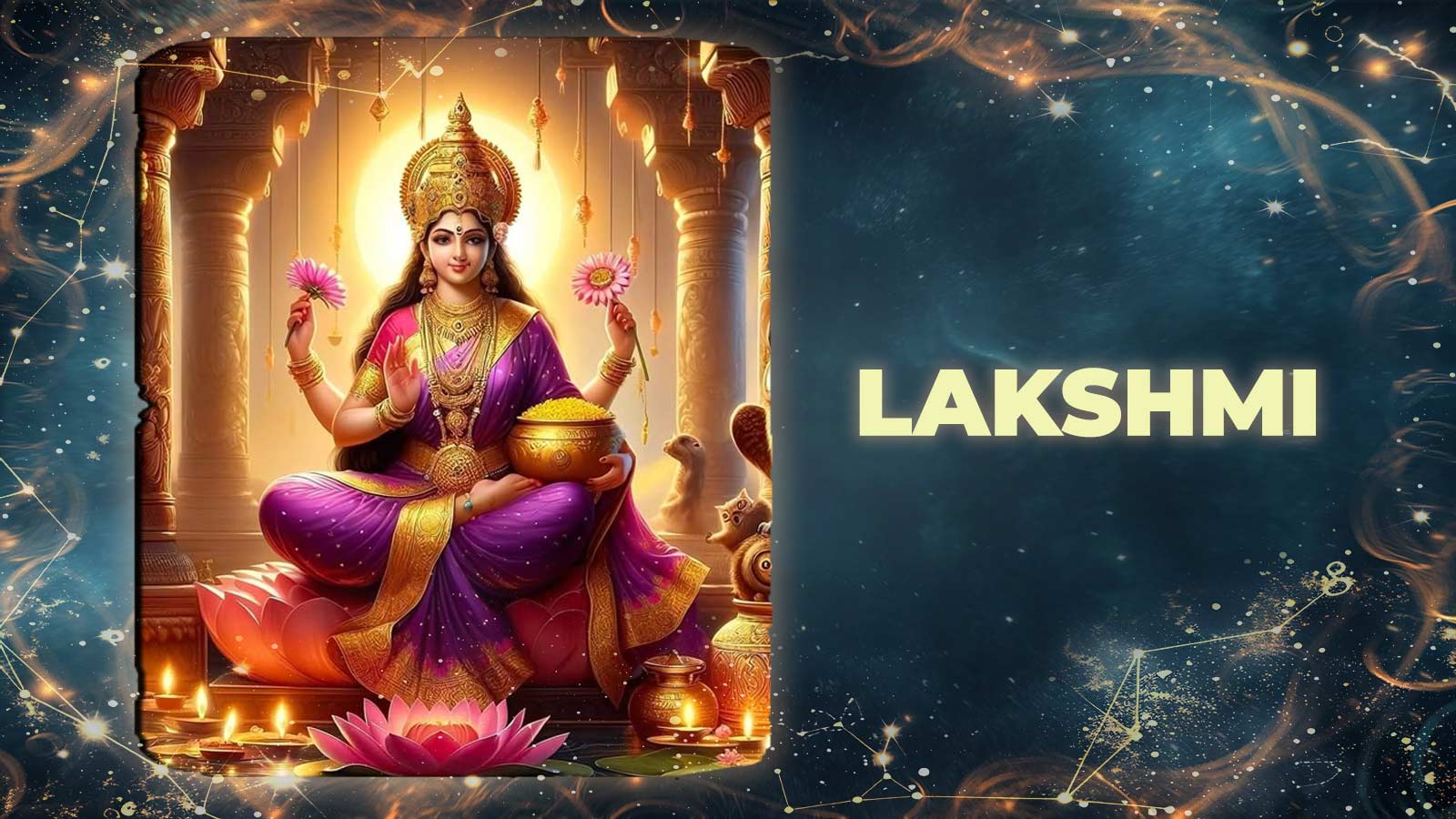
Lakshmi can be translated as the one who guides you to your dreams. Revered as a fundamental Mother Goddess in Shaktism, she represents the divine energy and wife of Vishnu, the Hindu Supreme Being. Together, they create the Universe, protect it, and transform it. Often painted in elegant clothing of intense red and golden hues, Lakshmi represents wealth, prosperity, power, and beauty. Although in the writings about most Hindu gods gambling was portrayed as harmful, she was primarily known for protecting honest players. However, her granting of good luck comes with an essential condition: that you steer clear from greed and arrogance, never losing sight of your humanity.
The saviour
Lakshmi does not tolerate bad behaviour in humans or other gods. Upset by the arrogance of Indra, the god of war, she fled the world, hiding in the sea-deep for over a thousand years. With her, she took all the good luck away from the gods. Consequently, the world turned dark and vulnerable to armies of demons, according to some legends.
Coming back
However, she returned when she saw the gods struggling and correcting their behaviour. Once again in the world, Lakshmi saved humanity and banished the demons. A symbol of Lakshmi is the Lotus flower. It is said arrived back into the world upon its petals, where she stored all the good fortune and beauty.
Hermes: The Rebellious Player
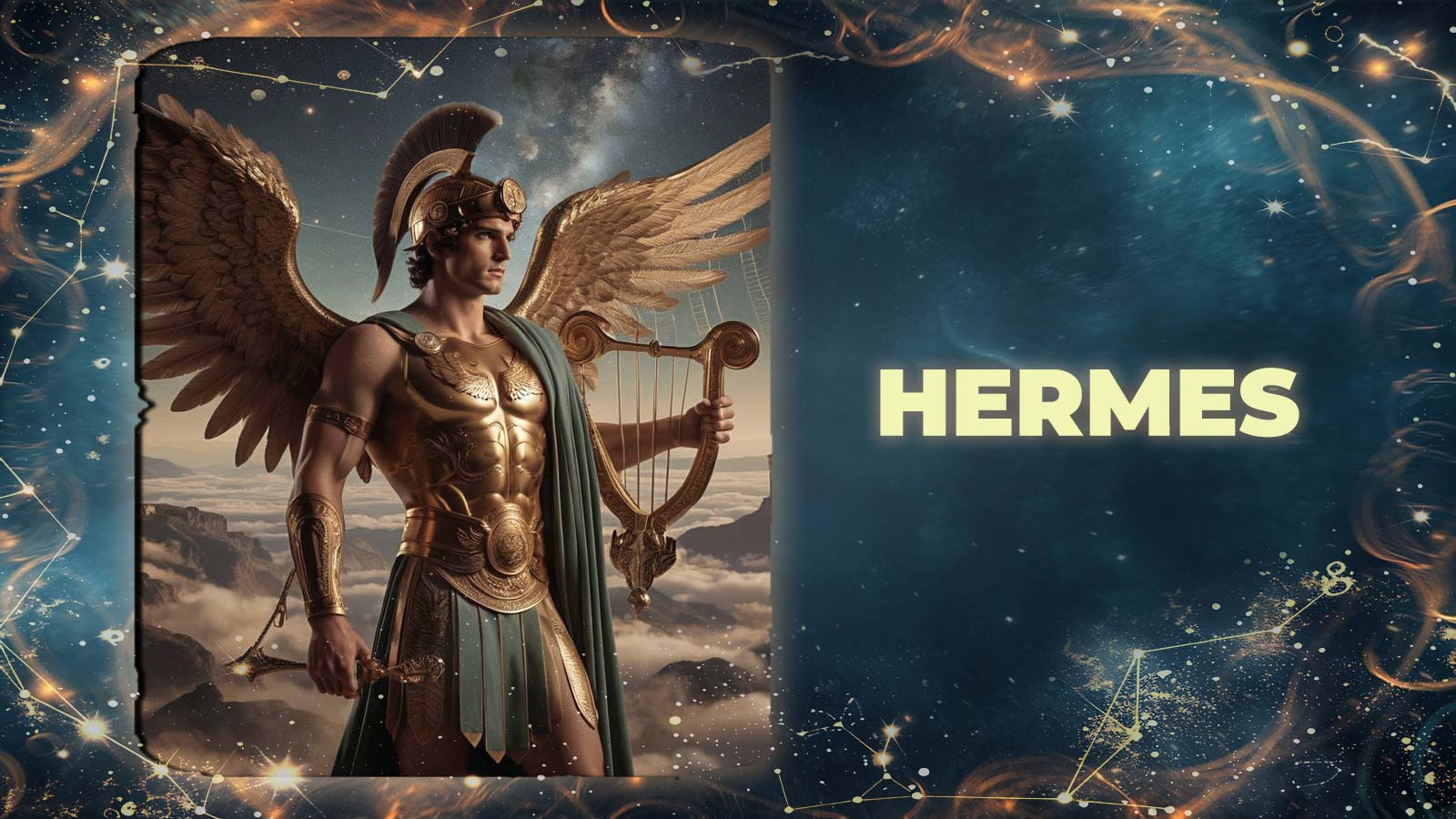
While Hermes is employed with the grave task of being the Greek Pantheon’s messenger, he is described as a happy-go-lucky character. He travels quickly between Mount Olympus and the human world in winged sandals and a helmet, even guiding souls to the Underworld.
He may help or confuse you
Renowned as a trickster god, he often interferes with mortals who gamble, either helping them or getting in their way. Hermes is the most well-liked of all Greek gods of gambling. The duality between responsibility and play shines through in the elements Hermes is credited with having invented: the alphabet, fire, and dice. In this way, he resembles other gambling gods, like Thoth or Lofn.
Gambling runs in his family
Some stories interpret that there are other gods of gambling or associated with it. Hermes’ father, Zeus, Hades, and Poseidon decided which parts of the world to rule by throwing dice. Some experts argue that the decisions of Greek gods were often described as being left to chance or fortune. However, there are no known stories of Greek gods with gambling addictions. Today, people still invoke Hermes before a game of chance or consult gambling horoscopes before engaging in a game. While such rituals can be pleasant, it’s essential to stay in control of your budget and habits!
Gambling Gods To Remember: 3 Honourable Mentions
Folklore worldwide abounds with examples of complex deities involved in human activities, such as gambling. If you enjoy myths or are drawn to how culturally and psychologically intricate they are, you may also want to discover the following gambling gods:
- Dazhbog: the Slavic gambling god, also known as the “giver of wealth”;
- Fortuna: the Roman horn of plenty, often represented as a beautiful woman holding the ancestral Wheel of Plenty;
- Kangiten: The Japanese god of gamblers, who also protects geishas and actors, with a particular taste for art, beauty, and intense emotions.
We have seen how the human mind envisioned gambling to be the dominion of intellectual, greedy, fierce, stable, and pure-hearted figures with elaborate backstories and social roles. Our modern world might have moved on from such stories into concrete life, technology, and pragmatism and not many search now the help of gods when playing at a new online casino. However, their lessons remain relevant. One common denominator: they all warned gamblers to play responsibly!
The Influence of Gambling Gods on Modern Gambling Culture
Once revered in temples and sacred rituals, these celestial patrons of luck and fortune now find homage in the bustling energy of casinos, the design of popular games, and the personal rituals of those who seek their favor. Now, even the most fast payout casinos and game developers frequently draw inspiration from these mythic figures, crafting environments and games that evoke the opulence and mystery of ancient temples and realms. New slot sites and machines or table games adorned with imagery of Lakshmi or Hermes invite players into a world where luck might just be divinely inspired. Beyond the visual allure, the stories of these gods — embodying chance, cunning, and fortune — enrich the gambling narrative. Moreover, players often engage in rituals steeped in the traditions of appealing to these gods for luck. Whether carrying charms symbolizing Thoth’s wisdom, whispering prayers to Fortuna before a crucial bet, or choosing game strategies that honor the traits of Nezha, the spirit of gambling gods is alive in gamblers’ actions and beliefs.
Final Thoughts
The influence of gambling gods on modern gambling culture is a testament to humanity’s enduring fascination with the concept of fortune and the desire to influence it. As new live casinos continue to pay homage to these deities and players carry on their rituals, the ancient and the contemporary merge, creating a gambling experience that is both deeply personal and magical.
Methodology
We are not experts in either sociology, myth, history, or psychology. But we used our varied expertise to research and create a top with the most renowned gambling gods and their lore. Our CasinoAlpha team has researched this article using reliable, verified sources such as academic journals on myth and sociology, as well as studies in religion and history:
- BBC – Religions
- Wikipedia
- Classical Mythology Stories Explained (timelessmyths.com)
- Mythopedia – Encyclopedia of Mythology
- The 13 Most Important Aztec Gods and Goddesses
- Norse Mythology: Gods, Creatures and Concepts
- Roman Myths and Religion
- The Role of Mythology as a Cultural Identity and a Cultural Heritage
We also employed our professional knowledge of the gambling industry to critically analyse all the information we acquired to create this article. Our professional insights are based on in-depth and pertinent information about the gambling market. They also extend towards the multifaceted ways in which the industry relates to other topics, which we explore in our blog topics.









